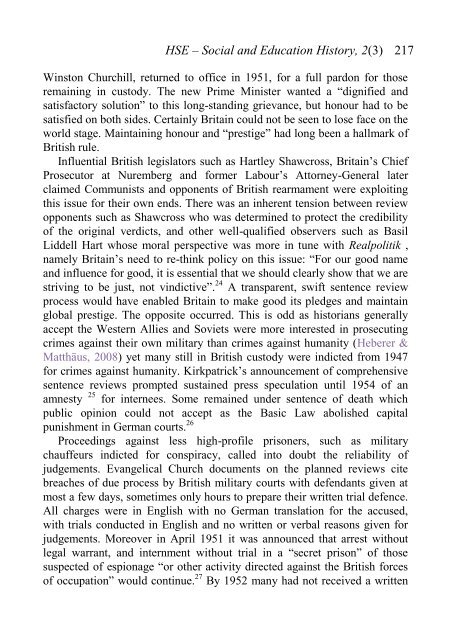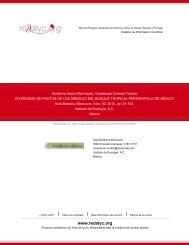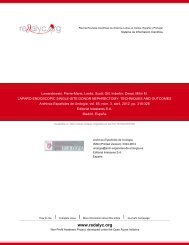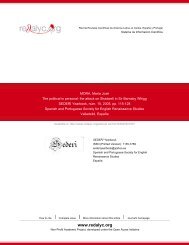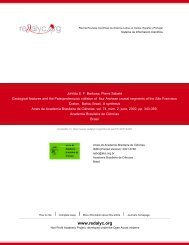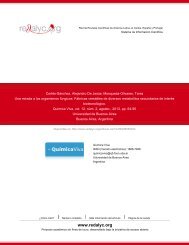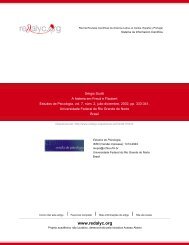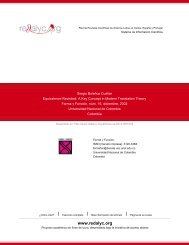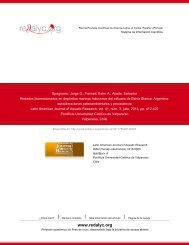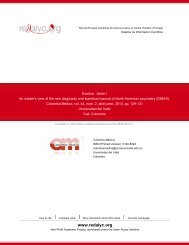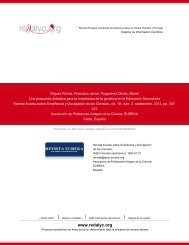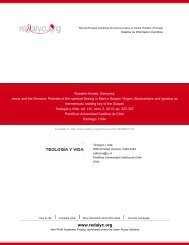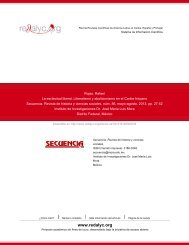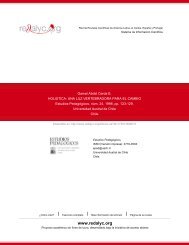Redalyc.British Justice in Western Germany, 1949-55
Redalyc.British Justice in Western Germany, 1949-55
Redalyc.British Justice in Western Germany, 1949-55
Create successful ePaper yourself
Turn your PDF publications into a flip-book with our unique Google optimized e-Paper software.
HSE – Social and Education History, 2(3) 217<br />
W<strong>in</strong>ston Churchill, returned to office <strong>in</strong> 1951, for a full pardon for those<br />
rema<strong>in</strong><strong>in</strong>g <strong>in</strong> custody. The new Prime M<strong>in</strong>ister wanted a “dignified and<br />
satisfactory solution” to this long-stand<strong>in</strong>g grievance, but honour had to be<br />
satisfied on both sides. Certa<strong>in</strong>ly Brita<strong>in</strong> could not be seen to lose face on the<br />
world stage. Ma<strong>in</strong>ta<strong>in</strong><strong>in</strong>g honour and “prestige” had long been a hallmark of<br />
<strong>British</strong> rule.<br />
Influential <strong>British</strong> legislators such as Hartley Shawcross, Brita<strong>in</strong>’s Chief<br />
Prosecutor at Nuremberg and former Labour’s Attorney-General later<br />
claimed Communists and opponents of <strong>British</strong> rearmament were exploit<strong>in</strong>g<br />
this issue for their own ends. There was an <strong>in</strong>herent tension between review<br />
opponents such as Shawcross who was determ<strong>in</strong>ed to protect the credibility<br />
of the orig<strong>in</strong>al verdicts, and other well-qualified observers such as Basil<br />
Liddell Hart whose moral perspective was more <strong>in</strong> tune with Realpolitik ,<br />
namely Brita<strong>in</strong>’s need to re-th<strong>in</strong>k policy on this issue: “For our good name<br />
and <strong>in</strong>fluence for good, it is essential that we should clearly show that we are<br />
striv<strong>in</strong>g to be just, not v<strong>in</strong>dictive”. 24 A transparent, swift sentence review<br />
process would have enabled Brita<strong>in</strong> to make good its pledges and ma<strong>in</strong>ta<strong>in</strong><br />
global prestige. The opposite occurred. This is odd as historians generally<br />
accept the <strong>Western</strong> Allies and Soviets were more <strong>in</strong>terested <strong>in</strong> prosecut<strong>in</strong>g<br />
crimes aga<strong>in</strong>st their own military than crimes aga<strong>in</strong>st humanity (Heberer &<br />
Matthäus, 2008) yet many still <strong>in</strong> <strong>British</strong> custody were <strong>in</strong>dicted from 1947<br />
for crimes aga<strong>in</strong>st humanity. Kirkpatrick’s announcement of comprehensive<br />
sentence reviews prompted susta<strong>in</strong>ed press speculation until 1954 of an<br />
amnesty 25 for <strong>in</strong>ternees. Some rema<strong>in</strong>ed under sentence of death which<br />
public op<strong>in</strong>ion could not accept as the Basic Law abolished capital<br />
punishment <strong>in</strong> German courts. 26<br />
Proceed<strong>in</strong>gs aga<strong>in</strong>st less high-profile prisoners, such as military<br />
chauffeurs <strong>in</strong>dicted for conspiracy, called <strong>in</strong>to doubt the reliability of<br />
judgements. Evangelical Church documents on the planned reviews cite<br />
breaches of due process by <strong>British</strong> military courts with defendants given at<br />
most a few days, sometimes only hours to prepare their written trial defence.<br />
All charges were <strong>in</strong> English with no German translation for the accused,<br />
with trials conducted <strong>in</strong> English and no written or verbal reasons given for<br />
judgements. Moreover <strong>in</strong> April 1951 it was announced that arrest without<br />
legal warrant, and <strong>in</strong>ternment without trial <strong>in</strong> a “secret prison” of those<br />
suspected of espionage “or other activity directed aga<strong>in</strong>st the <strong>British</strong> forces<br />
of occupation” would cont<strong>in</strong>ue. 27 By 1952 many had not received a written


